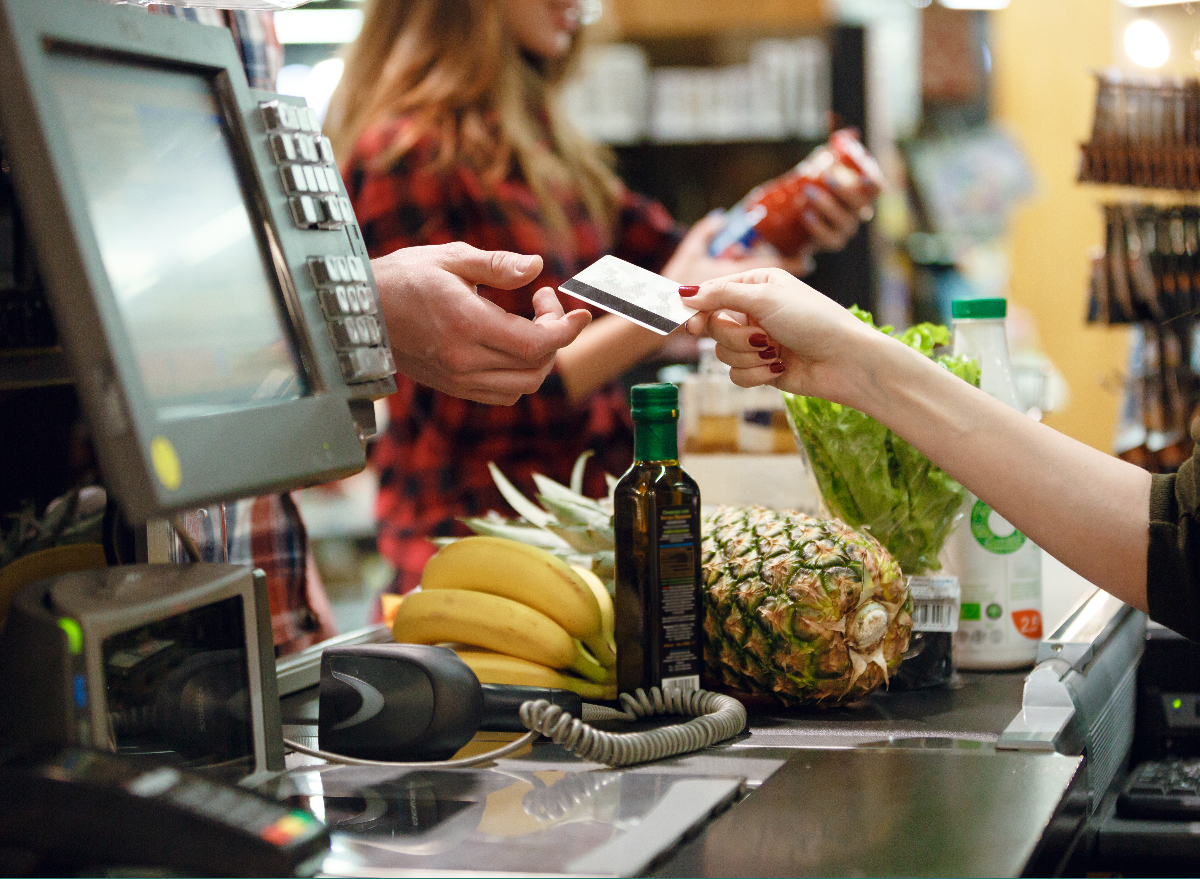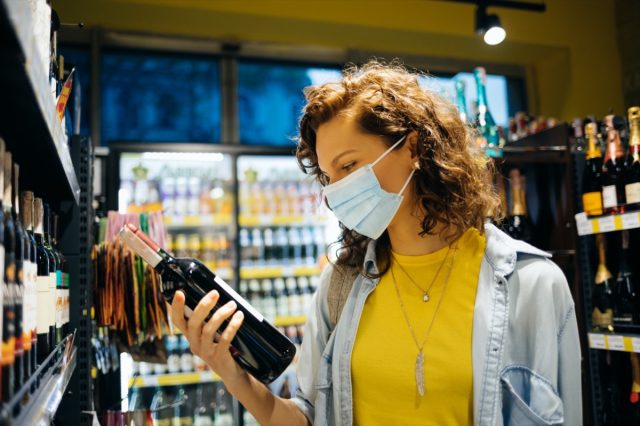This Is the Only Way to Contract Monkeypox at the Grocery Store, Experts Say

Monkeypox has spread across multiple countries, including the U.S., where the Centers for Disease Control and Prevention (CDC) has confirmed almost 5,000 cases since May. While reminiscent of the beginning of the COVID-19 pandemic, this viral disease spreads differently. We all remember masking up, wearing gloves, and waiting in line to get into the grocery store in 2020, but will we have to do that again because of this virus?
Experts at the CDC and others say monkeypox spreads mostly through close, intimate contact with someone who has it. Stuart Campbell Ray, M.D., the Vice Chair of Medicine for Data Integrity and Analytics and a Professor of Medicine at Johns Hopkins tells Eat This, Not That! that the risk is nearly zero "unless you tend to kiss or cuddle other shoppers who are sick."
That's because monkeypox is passed through direct contact with an infectious rash, scabs, or body fluid that is on the face, in the mouth, or on hands, feet, chest, or other areas of the body, according to the CDC—but not through the air like COVID-19. Other symptoms of monkeypox include fever, headache, muscle aches, swollen lymph nodes, chills, and exhaustion.
Yet another big difference between the two is that people who don't have symptoms cannot spread monkeypox, whereas asymptomatic people with coronavirus can still give it to others.

Still, it's best to be as safe as possible while at the grocery store as monkeypox cases in the U.S. go up, but also because COVID-19 is on the rise again, too. Dr. Ray suggests you still wear a "high-quality, well-fitted mask" while shopping indoors, even 2+ years after the start of the pandemic to avoid any COVID-19 exposure.
"It's increasingly clear that repeated SARS-CoV-2 infections can have negative health consequences," he says, adding that "Contact with surfaces touched by others is not a high risk activity, though it is generally true that hand hygiene is wise and touching your face in public is something to avoid."
This means you also don't need to wipe down any grocery items to kill off any potential monkeypox risk, either.









